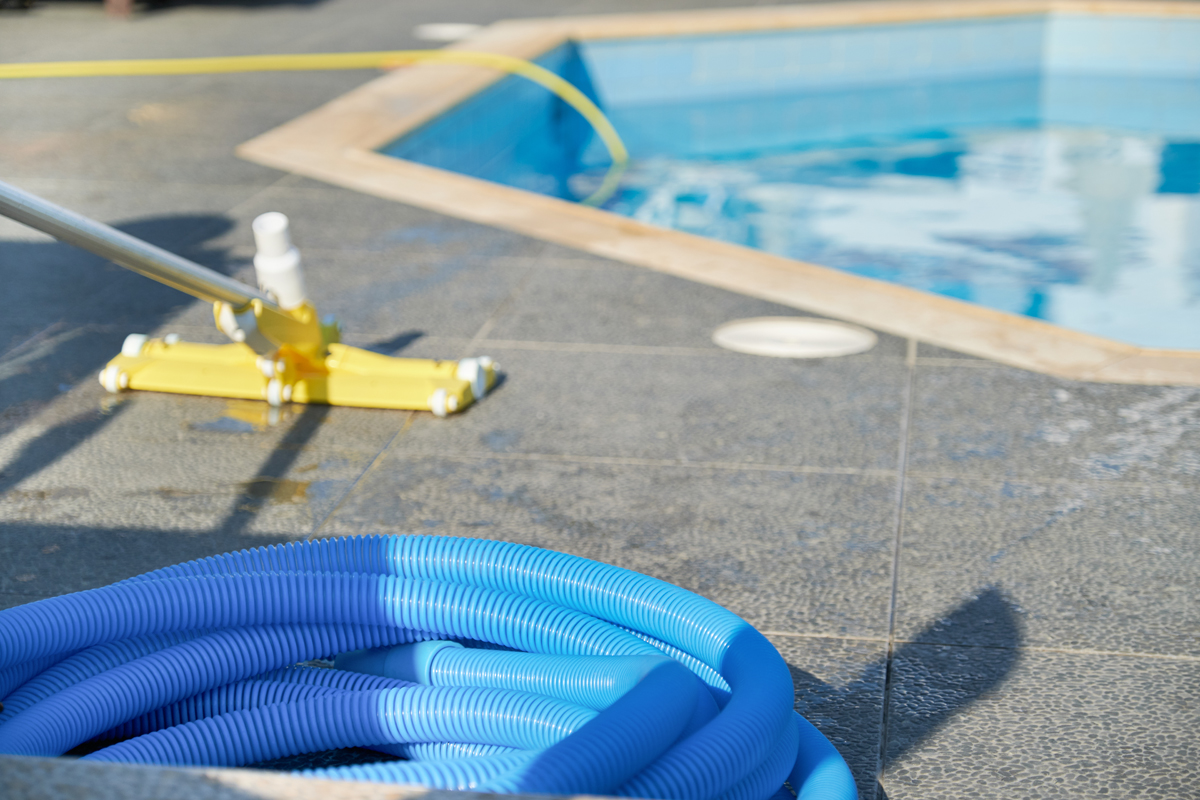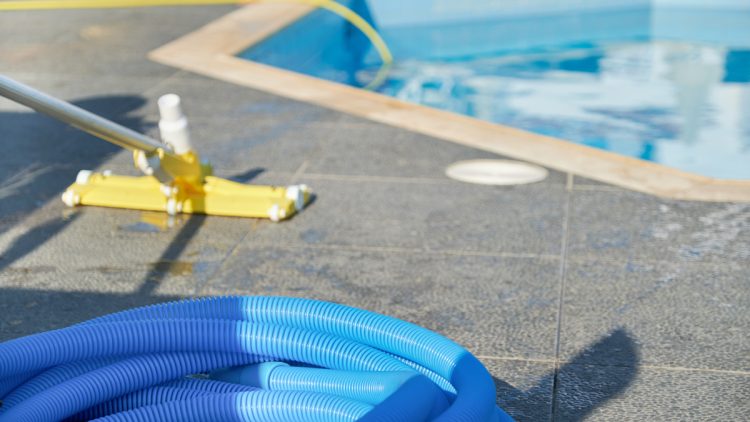What Chemicals Do I Need For My Pool?

Here is a quick overview of what chemicals you should use to treat your pool.
What Are The Main Pool Chemicals?
- Chlorine
- Shock
- Cyanuric Acid
- Bromine
- Algaecide
- Clarifier
- Calcium Chloride
- Flocculant
Chlorine
The most popular of all pool chemicals, chlorine keeps your pool water free of algae and bacteria. Chlorine can be purchased in many forms, including powder, liquid and tablet. When the pool water reacts with chlorine, hydrochloric acid is formed. This is the compound that ultimately fights bacteria.
Shock
To shock a pool means oxidizing the inactive chlorine. When this is added to the water, whatever chemical is used will start a process known as super chlorination. Shocking the pool water helps kill any present bacteria and sanitizer byproducts, alike. Depending on how much you use the pool, shock should be applied once every week to two weeks.
Cyanuric Acid
Cyanuric acid slows the sun from decomposing the chlorine in the pool water. However, there is a limited amount of cyanuric acid that can be added to the pool. Be sure to check if your chlorine includes cyanuric acid. If this is the case, it will not be necessary to add any more acid to the water. Water balance will be achieved at a neutral level of 7.0.
Bromine
Bromine is an alternative to chlorine that is usually used to treat warmer water found in hot tubs. Bromine works better at a higher pH level, typically seen in hot tub water.
Algaecide
Typically copper-based, these polymers are added as a preventative barrier against algae. Algaecide should be added right after the pool water has been shocked.
Clarifier
These polymers coagulate particles in the water. Clarifier works by trapping particles in the filter. This agent can contain numerous chemicals, including enzymes, crab shell extracts and ammonium chloride.
Calcium Chloride
A pool will need to reach a minimum level of calcium hardness before molecules look elsewhere for minerals. Calcium chloride is applied to increase calcium hardness overall.
Flocculant
Flocculant is similar to clarifier since it binds particles together. Yet, instead of running particles through a filter, flocculant will sink the particles to the pool floor. While the flocculant is at work, pool filters need to be shut off for 8-12 hours. Vacuum the particles from the floor once the process has been completed.
Pool Care In Gilbert, AZ
Pool Service Gilbert is a family-owned and operated business that has been serving the valley since 2004. We offer reliable and affordable pool services, including repairs, replacement, equipment installations and more! Our service area includes Ahwatukee, Chandler, Gilbert, Mesa, Phoenix and Tempe, Arizona. Contact us right here for your upcoming pool service needs! Call us at 480-748-3022 for more information.

